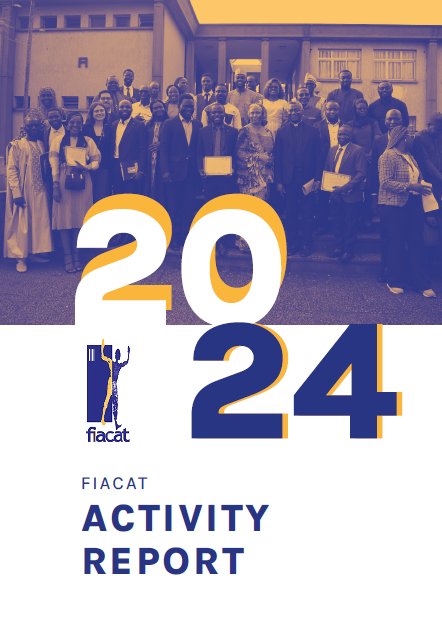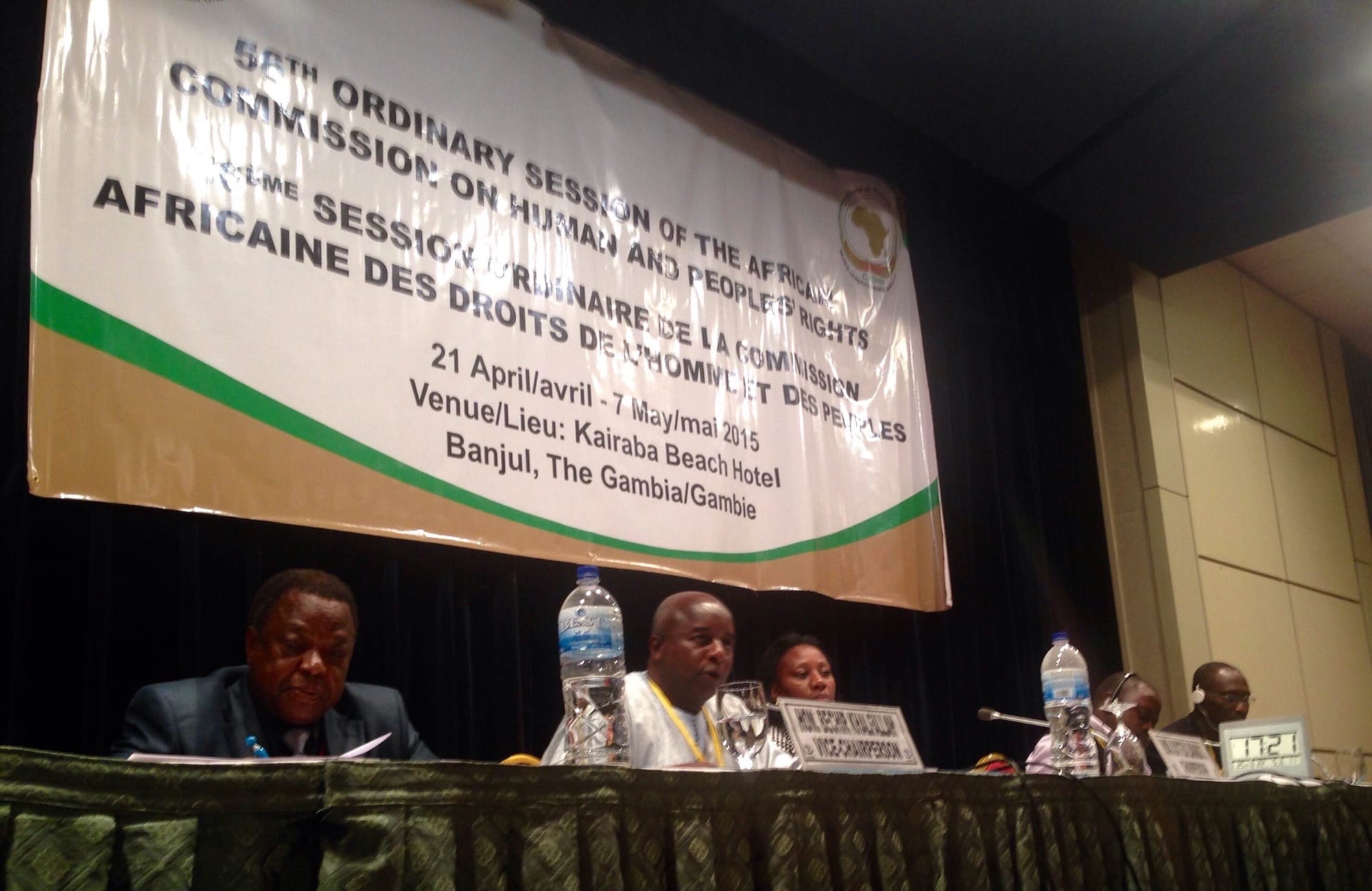At its 56th ordinary session, the African Commission on Human and Peoples Rights (ACHPR) put the abolition of the death penalty at the heart of its debates by including a panel discussion on capital punishment in Africa as part of the official agenda of the meeting on April 22, 2015.
The debate organized by FIACAT, FIDH and the World Coalition Against the Death Penalty in collaboration with the Working Group on the Death Penalty in Africa of the ACHPR, had the purpose to address the issue of capital punishment in view of the adoption, during the session, of an African Protocol on the abolition of the death penalty by the ACHPR.
The event saw the participation of representatives of civil society, governments and the African commission.
Moving forward: the importance of adopting a regional protocol
Mrs. Sylvie Zeinabo Kayitesi, chairperson of the African Commission on Human and Peoples Rights and of the Working Group on the Death Penalty in Africa, introduced the draft Protocol to the participants. She stressed on the importance of its adoption in order to regulate abolition and increase the protection of the right to life under the African Charter on Human and Peoples Rights.
Mrs. Kayitesi, whose mandate as chairperson of the ACHPR is about to end, showed the will to have the Commission adopting the draft protocol before passing over the presidency to another Commissioner at the next session.
The draft protocol received also the support of the government of Niger represented in the panel by Oumaria Mamane First Advisor of the Prime Minister. M. Oumaria described the efforts made by his government in the path towards abolition with the support of civil society organisations such as ACAT Niger and the Nigerien Coalition against the Death Penalty.
After approving a bill to adopt the Second Optional Protocol to the ICCPR in October 2014 and voting in favour of the UNGA moratorium resolution in December 2014, the government of Niger is now hoping to have the support of the Parliament in order to move towards legal abolition.
Finally, M. Oumaria announced the official support of its government concerning the African protocol on the abolition of the death penalty.
Regional progress and difficulties
Paul Angaman representative of FIACAT and the World Coalition outlined the progress made in Africa in the last few years. Nowadays 18 countries out of the 54 of the African Union have abolished the death penalty in law, 19 are in a situation of moratorium and 17 retain the death penalty.
The efforts made by civil society to move towards abolition in Africa and its strategies were presented by Andrew SONGA from the Kenya Human Rights Commission through a picture of the situation of its own country which is still in situation of moratorium.
A few member states took the floor in order to express their position and present the difficulties encountered in the path towards abolition as underlined by the representative of the Democratic Republic of Congo and of Algeria that for different reasons, namely conflict and heinous crimes, affirmed the impossibility to move towards definitive abolition of the death penalty.
The representative of Togo, abolitionist since 2009, encouraged fellow member states to get rid of capital punishment to improve their human rights record.
The moderator of the panel, M. Mabassa Fall, representative of FIDH, wrapped up the session by applauding the efforts of the ACHPR towards the abolitionist cause and encouraged the swift adoption by the Commission of the draft African Protocol in order to move forward in the process to strengthen the legal instruments of protection of human rights in Africa.




